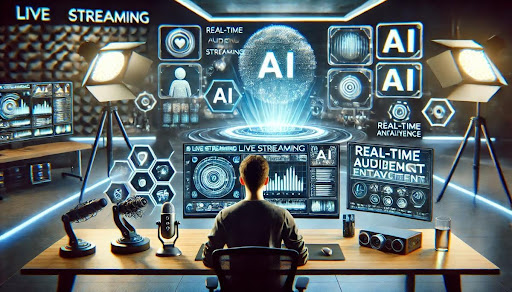
Search engine optimization (SEO) is constantly evolving, and businesses need to keep up with the latest trends to stay ahead. One of the biggest changes in recent years has been the rise of artificial intelligence (AI) and automation. These technologies have transformed how websites rank on search engines and how businesses optimize their content.
By using AI-driven tools, businesses can improve their SEO efforts with less manual work while achieving better results. Automation helps streamline repetitive tasks like keyword research, content optimization, and technical audits, allowing marketers to focus on strategy and creativity.
The Role of AI in Modern SEO
AI is reshaping how search engines work. Google’s AI-powered algorithms, such as RankBrain and BERT, analyze search intent and improve the relevance of search results. This means businesses must focus on high-quality content that matches user intent rather than just stuffing pages with keywords.
AI tools also help businesses understand what works by analyzing vast amounts of data. For example, AI-powered platforms can predict trends, suggest content ideas, and even optimize headlines for better engagement. With AI’s ability to process information quickly, businesses can refine their SEO strategies without spending hours on manual research.
Another major advantage of AI is its ability to analyze SEO stats in real time. Marketers can track keyword rankings, backlinks, and traffic patterns more effectively, making adjustments as needed. This data-driven approach ensures that SEO efforts are always aligned with the latest search engine updates.
Automating Keyword Research and Content Optimization
One of the most time-consuming aspects of SEO is keyword research. Traditionally, marketers had to manually analyze search trends, competition, and user intent. AI-powered tools like SEMrush, Ahrefs, and Google’s Keyword Planner have changed the game by automating this process.
These tools use machine learning to find relevant keywords, analyze competition, and suggest the best terms to target. Some platforms even provide insights on long-tail keywords and question-based queries that can drive more organic traffic.
Beyond keyword research, AI also helps with content optimization. AI-driven platforms like Surfer SEO and Clearscope analyze top-ranking pages and offer recommendations to improve content quality. They suggest ideal word counts, keyword placement, and readability improvements, ensuring content aligns with search engine expectations.
AI-Driven Content Creation and Optimization
AI-generated content is becoming more popular, with tools like ChatGPT, Jasper, and Copy.ai helping businesses create SEO-friendly articles, product descriptions, and meta tags. These tools don’t replace human creativity but assist in generating drafts that can be refined by content teams.
AI also plays a role in optimizing existing content. Many automation tools analyze old blog posts and suggest updates to improve rankings. For example, they might recommend adding new internal links, refreshing outdated statistics, or expanding sections that lack depth.
Additionally, AI helps with voice search optimization by identifying conversational keywords and structuring content in a way that aligns with how people speak. Since voice searches often involve question-based queries, AI tools can help format content for featured snippets and voice assistant responses.
Enhancing Technical SEO with AI and Automation
Technical SEO is another area where AI and automation provide major advantages. Site audits, which once took hours to complete manually, can now be done in minutes using AI-powered tools like Screaming Frog, Sitebulb, and Google Search Console.
These tools analyze a website’s structure, identify broken links, detect duplicate content, and highlight areas for improvement. AI can also predict how technical changes will impact search rankings, helping businesses make informed decisions.
Automation tools assist with fixing common SEO issues such as:
- Redirect errors – Identifying and fixing broken links.
- Page speed optimization – Compressing images, minifying code, and improving load times.
- Mobile-friendliness – Ensuring websites perform well on all devices.
With AI handling these technical aspects, businesses can focus on creating high-quality content and building strong backlinks.
AI-Powered Link Building and Backlink Analysis
Link building remains a crucial part of SEO, but finding and securing high-quality backlinks can be time-consuming. AI tools simplify this process by analyzing competitor backlinks, identifying new link opportunities, and even reaching out to potential partners through automated outreach campaigns.
Some platforms use machine learning to score backlink quality, helping businesses avoid spammy links that could hurt rankings. They also track backlink changes, alerting marketers to lost or toxic links that need to be disavowed.
By leveraging AI for link building, businesses can develop stronger, more authoritative link profiles that improve search rankings.
The Future of AI and Automation in SEO
As AI continues to advance, SEO will become even more data-driven and efficient. Google’s search algorithms will keep evolving, and AI tools will play a bigger role in content creation, keyword research, and technical optimization.
One emerging trend is the use of AI-generated video and multimedia content. Search engines are prioritizing rich media, and AI-powered tools are helping businesses create optimized videos, infographics, and interactive content that boost engagement.
Another key development is the integration of AI with voice and visual search. Businesses that optimize their content for these technologies will have a competitive edge in the ever-changing SEO landscape.
Final Thoughts
AI and automation are transforming the way businesses approach SEO. By leveraging AI-powered tools for keyword research, content creation, technical audits, and link building, companies can improve efficiency and achieve better results.
With search engines becoming smarter, businesses must stay adaptable and use AI to refine their SEO strategies. Tracking SEO stats with AI-driven insights ensures that optimization efforts remain effective in the long run.
As technology continues to evolve, embracing AI and automation will be the key to staying ahead in the competitive world of SEO.
Would you like any modifications or additional details in specific sections?







